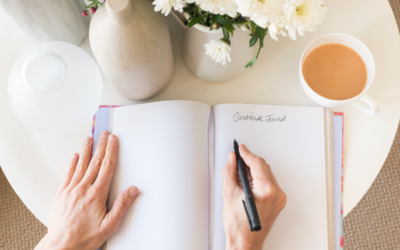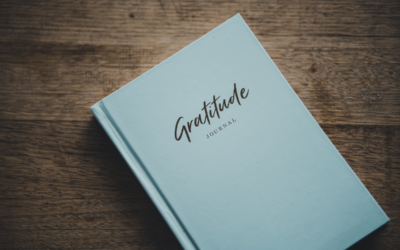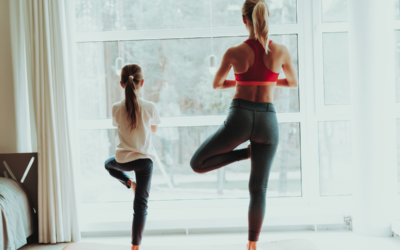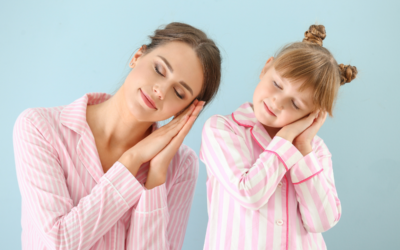Living with Generalized Anxiety Disorder
Do you often find yourself worrying about everyday issues for no obvious reason? Are you always waiting for disaster to strike or excessively worried about things such as health, money, family, work, or school?
I suffered from anxiety for many years and in my 20s it became chronic, at which point I went to see a doctor and I was diagnosed with GAD.
Occasional anxiety is a normal part of life. Many people may worry about things such as health, money, or family problems. But people with GAD feel extremely worried or nervous more frequently about these and other things—even when there is little or no reason to worry about them.
GAD usually involves a persistent feeling of anxiety or dread that interferes with how you live your life. It is not the same as occasionally worrying about things or experiencing anxiety due to stressful life events. People living with GAD experience frequent anxiety for months, if not years.
How can I support myself and others with generalized anxiety disorder?
- Educate Yourself: A good way to help yourself or a loved one who may be struggling with GAD is to seek information. Research the warning signs, learn about treatment options, and keep up to date with current research.
- Communicate: If you are experiencing GAD symptoms, have an honest conversation about how you’re feeling with someone you trust. If you think that a friend or family member may be struggling with GAD, set aside a time to talk with them to express your concern and reassure them of your support.
- Know When to Seek Help: If your anxiety, or the anxiety of a loved one, starts to cause problems in everyday life—such as at school, at work, or with friends and family – it’s time to seek professional help. Talk to a health care provider about your mental health.
5 Tips on Anxiety Coping Strategies
Here are my five favourite tips that have helped me not just cope but thrive through my disorder.
- Deep Breathing: Practising deep breathing can help you slow down your heart, intake more oxygen, and stimulate the production of endorphins (the“feel-good” chemical), all of which work to relieve anxiety and make you calmer.
- Do 15-Minutes of Yoga: Yoga can help you relieve tension, boost energy and mood, increase circulation, regulate heart rate, and reduce cortisol. Practice 15-30 minutes of yoga to relieve anxiety. I do this every day.
- Burn Essential Oils: Inhaling the scent of essential oils can provide very quick anxiety relief. Essential oils help to stimulate the smell receptors in your nose, which send messages to your nervous system helping you calm down. The following essential oils are my personal favourites and are great for anxiety relief:
- Lavender, Rose, Bergamot, Roman chamomile, Neroli, Frankincense, Sandalwood, Ylang-ylang, Orange or orange blossom, Geranium.
- Drink a Cup of Chamomile Tea: Chamomile tea is one of the best anti-anxiety drinks. It can calm you down, relieve anxiety, induce sleep, relax muscle tension, and reduce irritability.
- Adopt an Anti-Anxiety Diet: It is my experience that adopting an anti-anxiety diet is essential for reducing and managing anxiety.
You consume food a few times a day and if you’re eating anxiety trigger foods, it’s going to be difficult to manage your anxiety even if you are practising other effective anxiety coping strategies.
You won’t always have to eat an anti-anxiety diet, but it’s necessary to eat the right diet until you get your anxiety under control.
The anti-anxiety diet that helped me reduce and manage my anxiety is essentially a healthy, balanced, and clean diet with a focus on natural, whole foods. It involves consuming lots of vegetables and whole grains as well as fish, lean meats, fruits, nuts, and seeds.
These foods optimize your intake of essential nutrients required for mental health, stabilize blood sugar, and boost serotonin, a neurotransmitter with calming effects.
Finding myself again.
When I was first diagnosed with GAD I didn’t know how to deal with mental health naturally. Initially, I took anti-anxiety medication after which I started seeing a therapist. I spiralled many times and I depended heavily on medications. And in our culture, we never talk about mental health. We are worried about the stigma that comes with it.
It was only when I started doing a lot of research about alternative healing that I made changes to my lifestyle and mindset, which helped me to eventually overcome chronic anxiety and worry (GAD).
If I was doing this all over again, I would have done this the other way around, and perhaps I wouldn’t have needed to take any medication.
Today, I continue to eat healthily, exercise, get quality sleep, fresh air, go to the beach, relax and think positively, and while I still get anxious now and then in stressful situations, these tend to pass and anxiety no longer controls my life.
Trending Articles…
Need Some Help Looking on the Bright Side?
Do you consider yourself someone who looks on the bright side? It's not always easy, but having a positive outlook on life definitely makes life easier. I'm not saying that we should ignore our struggles or pretend that everything is perfect all the time, but having a...
Gratitude
Writing in a Gratitude Journal each day can help increase your overall wellbeing and happiness. Use your journal to refocus on the multitude of positives in your life and create a wonderful treasure to reflect on as you navigate life. I have often looked back upon my...
You Can’t Afford to be ‘Active’ When it Comes to Your Money!
Ever imagined sitting on a beach, sipping a drink with an umbrella in it, and not having to stress about heading back to work? I know I have. This seems like an impossible dream, but it’s a reality for many people (and not just those born with splashy trust funds!)....
Do you have a love-hate relationship with exercise?
Exercise can bring up a lot of funky feelings. You may be self–conscious about your athletic skills, that was me. Or you may be stuck in this story where you think you hate exercising. You might think exercise is something you “have” to do. Or maybe you think that if...
Take a MOMENT
With wellness becoming a greater focus in our lives, we’re constantly looking for fun new ways we can refresh and re-energise. Here are three different wellness techniques you can try.The ears are a surprising source of stress relief because they’re covered in reflex...
Are You a Tired Momma?
It's such an important part of our lives, but how much thought have you given to what goes into getting a good night's sleep? It wasn't until I became a sleep-deprived mom that I truly appreciated the importance of sleep (for myself and my daughter). Not only is it...






